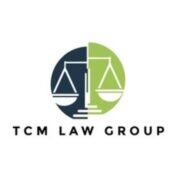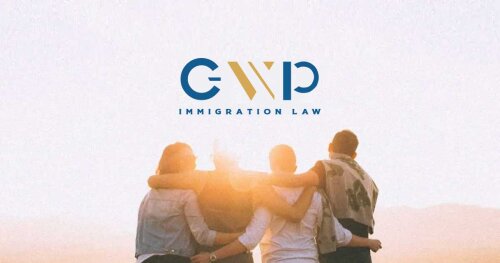Best Collaborative Law Lawyers in Las Vegas
Share your needs with us, get contacted by law firms.
Free. Takes 2 min.
Free Guide to Hiring a Family Lawyer
List of the best lawyers in Las Vegas, United States
About Collaborative Law Law in Las Vegas, United States
Collaborative law is a voluntary, non-adversarial process for resolving family law disputes, most commonly divorce, parenting plans, property division, and spousal support. In Las Vegas, parties and their specially trained attorneys agree to work together in good faith to reach a negotiated settlement outside of court. The collaborative process generally involves four key features - a written participation agreement, each party represented by a collaboratively trained attorney, full financial and factual disclosure, and a commitment that if the parties cannot reach agreement the collaboratively trained lawyers will withdraw and new counsel will be required for litigation.
In Las Vegas and the wider Clark County area, collaborative law is used as an alternative to traditional litigation to reduce cost, time, and emotional strain. The process often includes neutral professionals such as financial neutrals, divorce coaches, and child specialists to help the family reach solutions tailored to their circumstances.
Why You May Need a Lawyer
Even though collaborative law seeks to avoid court, having a lawyer is important because:
- A collaboratively trained lawyer explains legal rights and obligations under Nevada law and how those rules can affect settlement options.
- Lawyers help draft and negotiate the participation agreement that governs the process, including confidentiality, financial disclosure, and termination provisions.
- Attorneys ensure that settlements are complete, enforceable, and properly converted into court orders or decrees when needed.
- Lawyers protect your interests while preserving the cooperative nature of the process. They help evaluate tax consequences, retirement division, property characterization, and support calculations under Nevada law.
- If the collaborative process does not produce a settlement, ethical rules require collaboratively engaged attorneys to withdraw and new counsel is needed for litigation. A lawyer can advise on when collaborative law is appropriate and when litigation or another dispute resolution method may be safer.
Local Laws Overview
Key aspects of Nevada and Clark County law that affect collaborative family law matters include:
- Residency requirement - Nevada has a short residency requirement for divorce filings. One spouse generally must be a resident for a specified minimum period before filing for divorce. Confirm current residency rules with a local attorney before starting formal court actions.
- Community property - Nevada is a community property state. Property and debts acquired during the marriage are presumptively community property, subject to equal division unless parties agree otherwise or specific exceptions apply. Collaborative negotiations must address classification, valuation, and division of community and separate property.
- Child custody and parenting time - Nevada courts decide custody based on the best interests of the child. Collaborative agreements are generally permitted to set parenting plans and custody arrangements, and those agreements can be submitted to the court for approval and enforcement.
- Child support - Nevada uses guidelines to calculate child support amounts. Parties can agree to different amounts by mutual consent, but courts may review agreements to ensure they are consistent with statutory standards and the child's best interest when incorporated into a court order.
- Spousal support - Courts consider several statutory factors when awarding spousal support. Collaborative settlements addressing spousal support should account for those factors and the potential need for enforceable provisions in court orders.
- Confidentiality and enforceability - The collaborative process is governed by the parties agreement. While many participation agreements include confidentiality provisions, those provisions do not override mandatory court reporting, criminal matters, or court processes. Settlements can become enforceable orders when reduced to a written agreement and entered by the family court.
- Court procedures - Clark County Family Court handles filings, temporary orders, and final decrees. Because collaborative law aims to avoid court, parties typically file only final settlement documents. If a matter must go to court for emergency relief or other reasons, collaborative attorneys will normally withdraw and new counsel will be required.
Frequently Asked Questions
What is collaborative law and how does it differ from mediation?
Collaborative law is a lawyer-led, cooperative negotiation process in which each party has their own collaboratively trained attorney and the goal is a negotiated settlement without going to court. Mediation is typically led by a neutral mediator who works with both parties to reach an agreement. In mediation, parties may or may not have attorneys present during sessions, and if mediation fails either party can continue with their same attorney in court. In collaborative law, the lawyers are active participants in the negotiation but agree to withdraw if the case proceeds to litigation.
Who should consider collaborative law in Las Vegas?
People who want to avoid adversarial litigation, who are willing to negotiate in good faith, and who are able to be transparent about finances and priorities are good candidates. Collaborative law is particularly useful where ongoing co-parenting relationships are important, where complex financial issues suggest the need for financial neutrals, or where parties prefer a private process. However, collaborative law may not be appropriate in cases involving uncontrolled domestic violence, coercion, or parties unwilling to engage honestly.
How do I find a collaboratively trained lawyer in Las Vegas?
Look for local attorneys who advertise collaborative law experience or training. Ask whether the attorney has completed recognized collaborative training and how many collaborative cases they have handled. You can also consult the Nevada State Bar, local family law sections, or collaborative professionals groups to identify experienced attorneys in the Las Vegas area.
What is a participation agreement and what does it include?
A participation agreement is a written contract that sets out the rules for the collaborative process. Typical provisions cover the commitment to avoid court, confidentiality expectations, required financial disclosures, the role of neutral experts, fee arrangements, and what happens if the collaborative process ends without agreement - usually the lawyers agree to withdraw and the parties obtain new counsel for litigation.
Are collaborative agreements enforceable in Nevada?
Yes. A properly executed settlement agreement resulting from a collaborative process is treated as a contract and can be filed with the family court to become a court order or decree. That court order is enforceable like other family court orders. Confidentiality provisions in the collaborative process are contractual between the parties but do not prevent enforcement of the final agreement once it is filed with the court.
How much does collaborative law cost compared to litigation?
Costs vary widely. Collaborative law can be less expensive than full litigation because it aims to resolve matters more quickly and with fewer court appearances. However, collaborative work often involves multiple professionals - attorneys, financial neutrals, and child specialists - which can increase out-of-pocket costs. Many clients find the costs more predictable and the overall expense lower than prolonged court battles, but you should discuss fee structures and budget expectations with your attorney before starting.
What happens if the collaborative process breaks down?
If parties cannot reach an agreement, the participation agreement typically requires collaboratively trained lawyers to withdraw from representing the parties in litigation. The parties then retain new counsel for court. This withdrawal provision is intended to incentivize settlement and preserve the integrity of the collaborative process.
Is collaborative law confidential?
Collaborative sessions are governed by the participation agreement, which usually requires confidentiality for communications made during the process. Confidentiality protects settlement negotiations but it has limits - it cannot be used to conceal criminal conduct, mandatory court disclosures, or facts required by statute. Confidentiality also ends if the matter goes to court and information is introduced at trial or in filings.
Can collaborative law address complex financial issues like retirement plans and businesses?
Yes. Collaborative cases commonly use neutral financial experts to value businesses, pensions, and other complicated assets. The collaborative model is often well suited to complex financial cases because it allows parties to use specialists, develop creative solutions, and focus on long-term financial planning rather than short-term litigation tactics.
What if there are urgent needs like domestic violence or emergency custody orders?
Collaborative law is not appropriate when immediate court intervention is necessary to protect a party or a child. If there are safety concerns, active restraining orders, or urgent custody matters, it may be necessary to seek immediate court relief. Discuss any safety concerns with a lawyer who can advise whether collaborative law is appropriate or whether court action should be sought first.
Additional Resources
Useful organizations and resources for someone exploring collaborative law in Las Vegas include local and national bodies that provide information, training, and referrals. Consider contacting the following types of resources for help and referrals:
- Nevada State Bar - for lawyer referral services, ethics information, and lists of locally licensed family law attorneys.
- Clark County Family Court - for general information about family court procedures, filing requirements, and local court practices.
- Local family law section of the bar association - many local bar groups maintain lists or directories of attorneys who practice collaborative law.
- International Academy of Collaborative Professionals - a professional organization that provides training standards and a directory of collaborative practitioners.
- Legal aid and pro bono organizations in Southern Nevada - for low-cost or no-cost legal help if you qualify.
- Neutral professionals such as financial neutrals, child specialists, and divorce coaches who work in the Las Vegas area and have experience with collaborative cases.
Next Steps
If you are considering collaborative law in Las Vegas, follow these practical steps:
- Schedule initial consultations - Meet with one or more collaboratively trained family law attorneys. Ask about their collaborative training, experience, fee structure, and how they typically manage collaborative cases.
- Prepare basic documents - Gather financial records, property documentation, income information, and any court papers that may be relevant. Transparency is a cornerstone of collaborative law.
- Ask key questions - Ask about the participation agreement, confidentiality rules, how neutral experts are selected and paid, expected timelines, and what will happen if the process ends without agreement.
- Consider safety and urgency - If there are safety concerns or immediate legal needs, discuss whether collaborative law is appropriate or whether court filings are necessary first.
- Meet with your potential collaborative team - If you and your attorney agree to proceed, you may identify and meet neutral professionals who will help with finances, parenting, or psychological matters.
- Put the agreement in writing - Sign a participation agreement that explains the rules of engagement, financial arrangements, confidentiality terms, and what happens if the process fails.
- Keep open communication - Collaborative law depends on honest, constructive communication. Work with your attorney to set goals and timelines and to prepare for productive sessions.
Finally, remember that this guide is informational and not a substitute for legal advice. For guidance tailored to your situation, consult a qualified collaboratively trained family law attorney in Las Vegas.
Lawzana helps you find the best lawyers and law firms in Las Vegas through a curated and pre-screened list of qualified legal professionals. Our platform offers rankings and detailed profiles of attorneys and law firms, allowing you to compare based on practice areas, including Collaborative Law, experience, and client feedback.
Each profile includes a description of the firm's areas of practice, client reviews, team members and partners, year of establishment, spoken languages, office locations, contact information, social media presence, and any published articles or resources. Most firms on our platform speak English and are experienced in both local and international legal matters.
Get a quote from top-rated law firms in Las Vegas, United States — quickly, securely, and without unnecessary hassle.
Disclaimer:
The information provided on this page is for general informational purposes only and does not constitute legal advice. While we strive to ensure the accuracy and relevance of the content, legal information may change over time, and interpretations of the law can vary. You should always consult with a qualified legal professional for advice specific to your situation.
We disclaim all liability for actions taken or not taken based on the content of this page. If you believe any information is incorrect or outdated, please contact us, and we will review and update it where appropriate.













